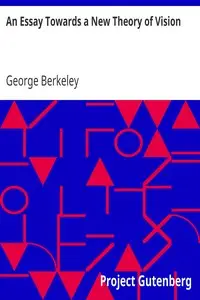
George Berkeley
George Berkeley – known as Bishop Berkeley – was an Anglo-Irish philosopher whose primary achievement was the advancement of a theory he called "immaterialism". This theory denies the existence of material substance and instead contends that familiar objects like tables and chairs are ideas perceived by the mind and, as a result, cannot exist without being perceived. Berkeley is also known for his critique of abstraction, an important premise in his argument for immaterialism.

A Proposal for the Better Supplying of Churches in Our Foreign Plantations, and for Converting the Savage Americans to Christianity, By a College to Be Erected in the Summer Islands, Otherwise Called the Isles of Bermuda
A bold plan emerges to transform the religious landscape of the English colonies through a college designed to train ministers and convert native populations.
By George Berkeley

The Querist Containing Several Queries Proposed to the Consideration of the Public
Can a nation truly prosper when surrounded by idleness and poverty, according to a series of challenging questions posed to society?
By George Berkeley

An Essay Towards a New Theory of Vision
** A revolutionary idea claims our sight is not automatic geometry, but a learned skill developed from touch and experience, changing how we understand our perception of reality.
By George Berkeley

Three Dialogues Between Hylas and Philonous in Opposition to Sceptics and Atheists
In a battle of wits, two characters debate the very nature of existence, challenging everything we perceive as real.
By George Berkeley

A Treatise Concerning the Principles of Human Knowledge
Venture into a world where reality itself is questioned as a philosopher argues that existence hinges on perception and how we experience the world around us through our minds.
By George Berkeley

The Works of George Berkeley. Vol. 1 of 4: Philosophical Works, 1705-21
Explore early 18th-century writings that challenge the understanding of reality through perception and faith.
By George Berkeley
